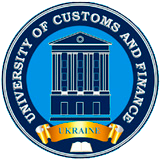VIRTUAL LABORATORY AS AN EFFECTIVE SOLUTION DURING DISTANCE EDUCATION
Abstract
In a world where the pace of change and technology is rapidly accelerating, education is more crucial and relevant than ever before. Recent developments in the education sector have fundamentally changed the paradigm of learning, particularly due to two key events: the COVID-19 pandemic and the onset of the war in Ukraine in 2022. These challenges demand new and innovative solutions in the educational process. Meanwhile, the situation in educational institutions has significantly complicated due to the onset of the war in Ukraine in 2022. Risks for students and educators, associated with being on university campuses during conflict, have increased, raising important questions about how to conduct and teach classes during wartime. A common factor that played a vital role in addressing these issues was the presence of a gadget that is almost ubiquitous: the mobile phone. This device became a bridge between students and educators, enabling the delivery of lectures and practical sessions online even when physical access to the university was restricted. Virtual laboratories emerge as a response to modern challenges in education, providing students with the opportunity to receive quality education amidst constraints and crisis. Virtual laboratories allow students to develop skills and enhance their knowledge without leaving home or a safe location. These innovative solutions support the learning process and contribute to the improvement of educational quality. Thus, virtual computer laboratories are an essential element of the educational space that can guarantee learning and development for students even in the most challenging situations. The paper analyzes the subject area, identifies tasks to be addressed when creating a virtual laboratory, and examines the software for remote laboratory access. Examples of tasks relevant to computer engineering are described, along with general features of tasks suitable for virtual laboratories. The paper develops a structural scheme of a virtual laboratory based on the proposed task directions. The choice of hardware and software components for the virtual laboratory within the university and for remote users is proposed and justified. The paper also outlines and describes the algorithm of the system's functioning as a whole.
References
2. Бохан Ю. В., Форостовська Т. О. Віртуальний лабораторний практикум як засіб вивчення природничих дисциплін. Наукові записки. Серія: Педагогічні науки. 2021. Вип. 194. С. 74–78.
3. Замковенко Є.А., Масич В.В. Віртуальна лабораторія в навчальному процесі. Наумовські читання: матеріали XVII студ. наук. конф. студ. та молод. вчених, присвяч. 80-річчю фіз.-мат. ф-ту, Харків, 14–15 листоп. 2019 р. С. 146–149. URL: https://dspace.hnpu.edu.ua/handle/123456789/8196
4. Gunawan, G., Harjono, A., Hermansyah, H., & Herayanti, L. Guided inquiry model through virtual laboratory to enhance students'science process skills on heat concept. Jurnal Cakrawala Pendidikan. 2019. 38 (2). P. 259–268.
5. Kusmawan, U. A Virtual Lab As A Vehicle For Active Learning Through Distance Education. International Journal of Research in STEM Education. 2022. 4(2). P. 18–38.
6. Hocking, J. Unity in action: multiplatform game development in C#. Simon and Schuster. 2022. 416 p.
7. Tiahunova M., Kyrychek H., Bohatyrova T., Moshynets D. System and method of automatic collection of objects in the room. Proceedings of the 4rd Workshop for Young Scientists in Computer Science & Software Engineering, Vol-3077, Kryvyi Rih, Ukraine, December 18, 2021, P. 174–186.
8. Setiyani, Lila, Femmy Effendy, and Annisa Anggraini Slamet. Using Technology Acceptance Model 3 (TAM 3) at selected private technical high school: google drive storage in e-learning. Utamax: Journal of Ultimate Research and Trends in Education 3.2. 2021. P. 80–89.
9. Gamnis, Steven; Vanderlinden, Matthew; Mailewa, Akalanka. Analyzing Data Encryption Efficiencies for Secure Cloud Storages: A Case Study of Pcloud vs OneDrive vs Dropbox. Advances in Technology. 2022. P. 79–98.
10. Alotaibi, Shamsah; Alomair, Hadeel; Elhussein, Mariam. Comparing performance of commercial cloud storage systems: the case of dropbox and one drive. In: 2019 International Conference on Computer and Information Sciences (ICCIS). IEEE, 2019. P. 1–5.

 ISSN
ISSN 




